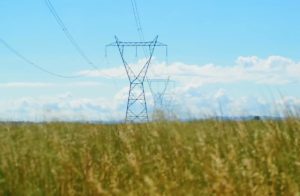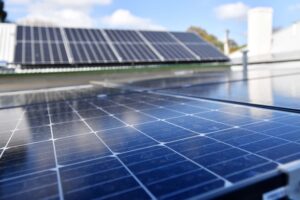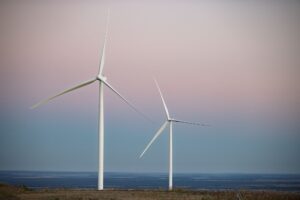AGL has made a $3 billion play for telecommunications provider Vocus Group in a move that will likely see the energy giant integrate energy services with data and internet packages, and facilitate the development of smart-grid solutions and a future business model.
The play for Vocus is AGL’s biggest and most significant corporate play purchase since it bought its coal generation fleet in 2012 (Loy Yang A) and 2014 (Liddell and Bayswater), and comes just one working day after AGL revealed major problems at the Loy Yang A generator.
While AGL’s decision to buy into coal and effectively change the colours of its business strategy from green to black and brown, and use the coal burners to underpin profits for the next decade or two, the Vocus play signals what might come next in energy markets.
AGL – and other utilities – have been struggling to find a business model that will ensure their future as the energy market migrates from the old centralised model and disappears “behind the meter”.
A combination with telecommunications has been tipped as one avenue to engage customers increasingly attracted to their own generation (rooftop solar), their own storage (batteries), and their own smart software. Vocus is surely an attempt to buy into that market.
In recent years, AGL has also sought to build its experience in new business models and technologies, with a particular focus on smart-grid applications, including a $20 million virtual power plant trial, which won ARENA backing. The coordination of the growing demand for electric vehicle charging in another challenge identified by AGL.
The alignment of energy and data services has been a growing trend in the Australian market, following junior telco amaysim acquiring retailer Click Energy in 2017 and Origin Energy beginning to offer broadband internet services, and ongoing speculation that Telstra may enter the energy market.
Vocus Group provides business and wholesale network and internet services and has established its own network infrastructure across Australia, New Zealand and throughout the Pacific region. It also operates almost two dozen data centres across the Pacific region, that AGL sees as potentially benefitting its wholesale generation portfolio.
Vocus owns a range of brands that cover different business segments, including commercial, government, small business and residential customers across Australia and New Zealand, including consumer-focused internet service providers iPrimus and Dodo, which already offers some energy services.
AGL has submitted a non-binding indicative offer to acquire all of the outstanding shares of Vocus Group at $4.85 per share, which closed at $3.83 on Friday, prior to the announcement of AGL’s offer.
AGL sees the potential acquisition of a telecommunications provider as part of a core strategy of providing value to customers and strengthening customer loyalty and develop innovative products for its customers in light of projected growth in demand for smart energy systems, including virtual power plants and demand response.
“AGL’s interest in Vocus is consistent with AGL’s strategy to meet the needs of increasingly connected customers as energy and data value streams converge and the traditional energy sector transforms – and aligned with AGL’s capabilities in integrating and managing complex assets and customer portfolios,” AGL said in an announcement to the ASX.
“AGL believes acquiring Vocus may be an optimal way of executing this strategy, creating material shareholder value and driving customer loyalty while providing access to a market-leading integrated broadband fibre asset base and creating considerable additional options for long-term growth.”
The acquisition of Vocus Group has been an on-again, off-again affair.
In late May, AGL confirmed that it had withdrawn a confidential non-binding offer to acquire Vocus Group, following media speculation in the Australian Financial Review.
At the time, AGL had been pre-empted by Swedish consortium EQT Infrastructure, who had beaten AGL to making an offer for Vocus. However, just days later, EQT confirmed that it had terminated negotiations following its own period of due diligence.
AGL jumped at the chance of acquiring Vocus Group, confirming its offer following EQT’s withdrawal.
“After last week’s announcement that discussions with EQT Infrastructure had ceased, AGL returned with a non-binding and indicative proposal to acquire Vocus for $4.85 per share. There is a clear market opportunity for Vocus, which is generating significant interest in our business and our assets. We are focused on executing our turnaround strategy and delivering the opportunity in front of us.” Vocus CEO Kevin Russell said.
With the announcement of the non-binding offer, AGL will now be able to undertake a due-diligence of Vocus Group, before making a final decision within four weeks.
The confirmation of AGL’s moves to diversify its business follows an announcement that ongoing outages at AGL’s brown coal fuelled Loy Yang Power Station will have a material impact on the companies profits.
AGL cited “the unique original technical design specifications of the Unit and the extent of damage” for the extent of the impact, which the company estimates will reduce profits after tax in the 2020 financial year by between $60 million and $100 million.








